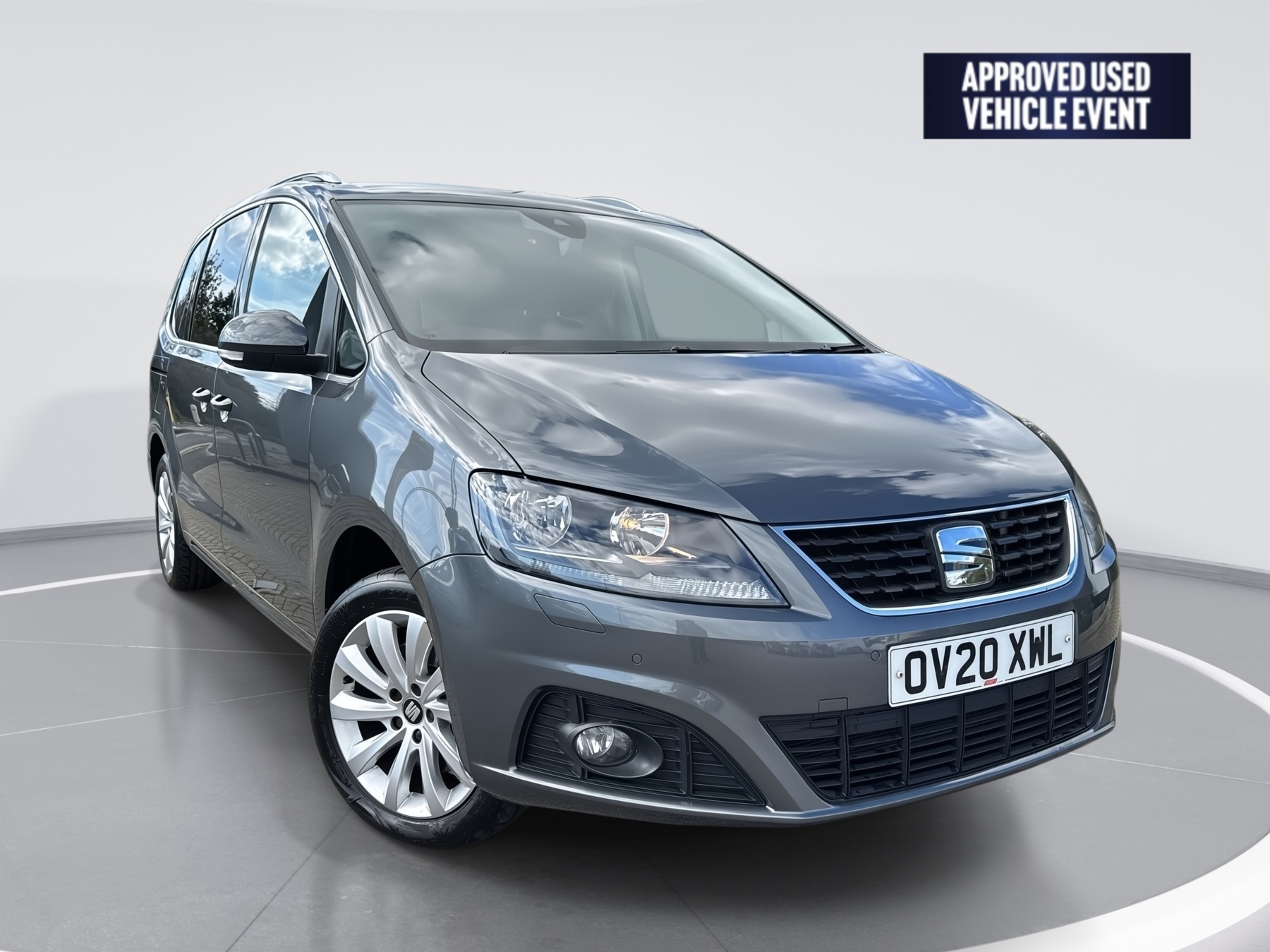Click for vehicles with £200-£700 cashback + free delivery
- Monday-Friday, 9am-5pm
- 020 3936 1257
- hey@heycar.co.uk
See what customers are saying
“Excellent”
Trustscore: 4.4/5
Copyright 2024 heycar - All rights reserved
Click for vehicles with £200-£700 cashback + free delivery

£19,750

£21,697
£17,962
£21,590
£19,145
£19,495
£15,058
£20,214
£23,515
£19,274
£12,900
£17,997
£18,550
£21,000
£20,950
£19,400
£20,997
£19,995
1-18 of 43 vehicles
What is the most popular colour for SEAT Alhambra ?
What is the most popular gearbox for SEAT Alhambra ?
What is the most popular fuel type for SEAT Alhambra ?
What is the most popular engine for SEAT Alhambra ?
What is the average mileage for SEAT Alhambra ?
40951
How many SEAT Alhambra cars are available for sale?
41
The SEAT Alhambra was part of a dying breed when it finally left the showrooms in 2020: a proper seven-seat people carrier or MPV. The fickle fashions of the market have seen MPVs almost disappear over the last few years, but if maximum space for minimum outlay is all that concerns you, then there’s a lot to be said for a proper people carrier, and for the SEAT Alhambra in particular.
With seven full-sized seats it’s got enough space for adult passengers, there’s a good boot even with all the seats in place, and the rear doors slide for easy access. It’s not the most stylish vehicle around and by the time it went off sale, the latest breed of crossovers had long overtaken its technology, safety, and features, but if that isn’t a concern, then a used SEAT Alhambra makes a lot of sense.
Genuine seven-seaters are rare today, but are a little easier to find used, so SEAT Alhambra alternatives include the similar Volkswagen Sharan, the Ford Galaxy, and the Citroen Grand C4 Picasso. Van-based MPVs like the Citroen Berlingo are one option, while there’s also the Dacia Jogger - a new seven seater at used-car prices.
The first SEAT Alhambra appeared all the way back in 1996, as a near-identical alternative to the Volkswagen Sharan and Ford Galaxy developed alongside it - and as competition in a bustling people-carrier market including the venerable Renault Espace, Chrysler Voyager, and more. It’s strange to think that the segment has almost entirely disappeared, but the Alhambra was one of the last to leave, the second-generation model introduced in 2010, only finally bowing out in 2020.
By the time it disappeared, it’s fair to say the SEAT Alhambra lagged behind newer (if less practical) crossover alternatives in terms of the latest safety technology, and in the increasingly important area of in-car entertainment - a 6.5-inch touchscreen is now half the size of that offered in a lot of cars.
Yet the SEAT Alhambra has never been bad to drive. It’s still effectively a car, just a tall one, so has car-like driving characteristics, with pleasant steering and minimal body roll, and decent grip too - and with a full complement of passengers on board, you’re unlikely to be testing its limits regardless. The ride can be a little firm, particularly on models with sports suspension, but cars like this tend to settle down when you load them with more people and their things.
The other modern aspect the SEAT Alhambra lacked is any kind of hybrid powertrain. Instead you got a small selection of petrol and diesel engines, but these did the job just fine, with the diesels making most sense for their performance and economy.
As a used buy it’s the seating flexibility that will really appeal though - sometimes you just need seven seats, or the ability to fold or remove them for even more space. And sometimes, a sliding door (electric on some models) makes a lot more sense than a hinged one, particularly in tight parking spaces.
Even the Ford Galaxy doesn’t offer that, one of the only MPVs you can still buy new today. The old Volkswagen Sharan did, being largely identical to the Alhambra, and both the Ford and VW are cars you might consider as used alternatives. Van-based MPVs like the Citroen Berlingo are also worth a look, while the same money you might spend on a used Alhambra could also get you a brand new Dacia Jogger with seven seats and a new-car warranty.
A SEAT Alhambra not for you? We've got 1000s of used cars for sale to suit all budgets and needs
We’d seek out SEAT Alhambras sold from 2015 onwards, when the model was updated with better equipment levels and more efficient engines. Of those, SE L specification would be our pick, with useful features like a rear-view camera for parking, and electric power for the sliding doors. The Xcellence’s panoramic sunroof is a nice touch, but it’s probably not worth paying over the odds for.
Engine-wise, the 1.4 TSI is a good choice for mainly city-based drivers, but the 2.0 TDI is the real star of the range, with strong performance - particularly in its 177PS variant - and the potential for 10-15mpg more than you’d get from the petrol.
SEAT Alhambra trim levels changed a little over the years but before the model went away in 2020, the three-tier system below kept things simple. The 1.4-litre petrol wasn’t available in Xcellence trim, and the 177PS TDI was Xcellence-only, but otherwise you could pair any trim level with any engine, so bear this in mind when you’re hunting down a used SEAT Alhambra in the perfect combination.
The SEAT Alhambra’s dimensions are:
The SEAT Alhambra’s boot size is:
You’ll pay £180 a year in VED or ‘road tax’ for any SEAT Alhambra registered from April 2017 onwards, since both petrol and diesels attract the same rate of tax. Prior to this, VED will be based on CO2 emissions - which makes the diesels even more appealing, given their low CO2 ratings.
There isn’t much of a spread with SEAT Alhambra insurance groups. Among the later models, with 1.4 TSI and 2.0 TDI engines and across three trim levels, the entire range can be found in groups 20-22. This means insurance should be pretty affordable, and puts the Alhambra in the same ballpark as similarly-sized MPVs.
Read our full Seat Alhambra review